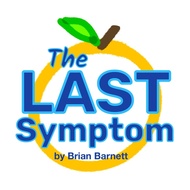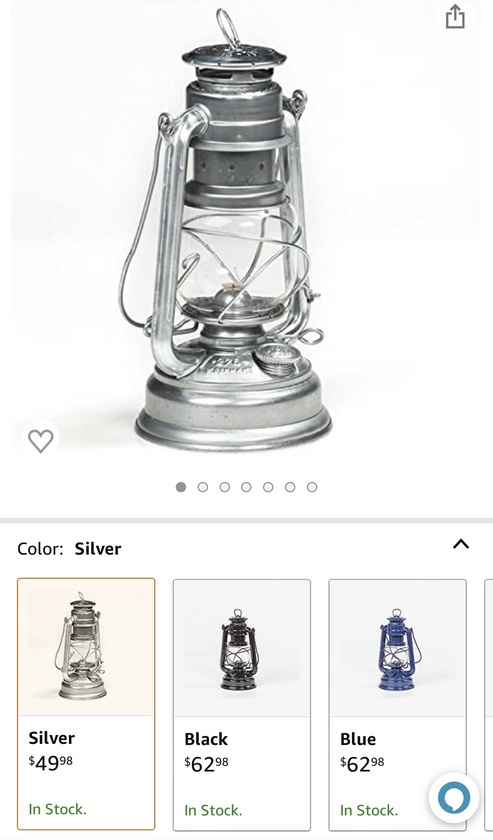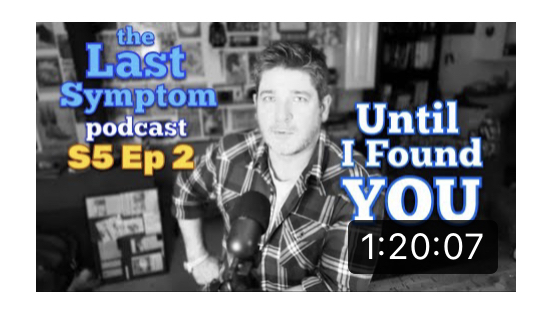“You need to just let it go and move on.”
Have you ever heard somebody say that before?
When I was beginning my own authentic recovery from Borderline Personality Disorder - something I used to live with unknowingly, and something that I authentically rid myself of completely - it used to drive me nuts when I would try expressing some of the tremendous injustices committed against me in my life, and people would say this to me: “Forget about it. Let it go.”
Most people unhelpfully talk about this as “forgiveness”.
I wish I could say that they improperly or even falsely talk about this as forgiveness, but unfortunately, for anybody hoping for real insight on this subject, it’s not that simple.
Many people use the word “forgiveness” when what they really mean (unknowingly) is Acceptance. This is especially true in many religious contexts.
It is not unusual for many of the words we use in everyday speech to carry several distinct connotations, each connotation unrelated to the other. Take for example the word ‘light’. What determines the meaning of this word? It is context.
If I ask to help you carry your groceries and you tell me, “No thanks, these bags are light”, I understand immediately that you are not suggesting that they are emitting rays of illumination.
Likewise, if I say that the picture of my television screen isn’t ‘light’ enough for some movie I’m watching, you immediately understand that I’m not talking about its weight, but rather how bright the picture is.
In most cases with words that carry multiple connotations, the context makes things clear. However, every once in a while, particularly with anything related to emotional health, great misunderstandings and confusion occur when a really important word carries multiple connotations, and worse yet, when the various connotations are subtle in their differences.
The reason for this is that people are already living with misunderstandings, or complete lack of understanding, and when you add on top of that words with multiple connotations, it is a recipe for disaster. It prevents people from seeing and understanding things clearly, and therefore advancing. It creates confusion and leads people to do things in ways that they believe are right, but that are not right.
The average person means two distinct things when they speak of ‘forgiveness’:
1. Letting go of resentment
2. Allowing another person back into your good graces, that is to say, to consider a debt paid, or that you have received compensation.
These two meanings: Letting go of resentment, and viewing yourself as compensated, are two entirely distinct meanings that do not in any way involve the same thing.
Think about it real hard for a second: Does me simply not feeling resentment toward a person inevitably mean also allowing them into my life? Not at all. Does considering a debt paid inevitably involve also not resenting a person? Not at all.
I can hope well for a person and not resent them while at the same time seeing that they should not be in my life.
You do this all the time with puppies and stray kitty cats. Your kids beg you to adopt them and take them home, and you say, “Children, no. We just can’t take on the added responsibilities at this time.” Right?
Because you don’t want to take the dog or cat into your life, is this proof that you resent the dog or cat? Absolutely not.
Furthermore, the lady at the bank may resent me even after I pay off my car loan. My having paid off my debt does not also inevitably involve her feelings about me changing.
At the beginning of this discussion I said that people unhelpfully apply both of these distinct meanings that we’ve discussed to the word “forgiveness” and that I can’t say they are doing this improperly, or falsely. This is because technically, both of these meanings are in fact legitimate meanings for the word “forgiveness”.
However, just because both meanings, or connotations, are technically legitimate uses of the word forgiveness does not mean that it is in your, or anybody else’s best interests to continue using the word “forgiveness” in both ways. All this does is contribute to, and enforce, confusion and distorted understanding about life.
What did we say the two completely-distinct, unrelated meanings, or connotations of the word Forgiveness are?
- Letting go of resentment
- Allowing another person back into your good graces, that is to say, to consider a debt paid.
Letting go of resentment: Who is that one for? Is that something we do primarily for another person, or is that something we do primarily for ourselves?
It’s something we primarily do for ourselves. It’s a favor we do for ourselves so as to not lose peace, or to not continue losing peace.
What does letting go of resentment involve? It involves our thoughts and feelings - in that order.
Why in that order? It has to occur in that order because nobody has a Resentment Switch inside of themselves that they can just flip up or down to turn resentment on and off. Nobody has direct control over his or her feelings. Choosing what we feel isn’t something human beings are able to do, since feelings are something we experience as human beings, not something we do. (This is why expressions such as “don’t be mad…” are so stupid and destructive.)
But every feeling we experience is preceded by thoughts - our feelings are born directly from our thoughts - and we do have full control over not only what we continue thinking about, but also how we continue thinking about a thing.
So letting go of resentment involves recognizing what thoughts we live with that are giving birth to resentment, and then choosing:
- To stop allowing ourselves to think certain things altogether
- To think about some other things more and other things less
- To think about the same things, but to choose to think about them in a different way.
Honestly, I can’t stress this enough: Nothing has become more practically useful or powerful in my life than the realization that the solution to almost every problem is how I myself am choosing to think about it.
When I’m having a “bad day”, the first thing I do is look at what my thoughts are doing to understand why. If I see that my mind is hanging onto a bunch of negative thoughts and that’s why I am interpreting my day in such a negative way, I simply choose different things to think about, or I think about the same things but in a different way, and my day gets better.
If everybody around me seems to be annoying and troublesome on a certain day, I stop and take a look at my thoughts. Then I usually realize that it is not that the people around me are being more troublesome or annoying than usual, but that instead it is my own negative thinking that is making it seem that way, which in turn is making me feel negatively. So I choose to think about different things, or to think about the same things in a different way, and suddenly people don’t seem so annoying anymore.
I have two new puppies. Puppies chew up and destroy everything. They get into places they aren’t supposed to be, they get ahold of things they’re not supposed to have. When I realize I am beginning to get frustrated at the destruction they cause, the first thing I do is check the sorts of thoughts I have been allowing to play in the background of my mind. I then choose to think about things differently. Suddenly the destruction my pups create isn’t frustrating anymore, instead it becomes comical, endearing and precious.
If this thought hasn’t occurred to you, it should: How did I cure myself of Borderline Personality Disorder? If you strip what I did down the bare bones, what is it that I did that took me from somebody completely enslaved to that emotional disorder to somebody completely free of it? In the simplest terms possible, how did I do it?
I identified thoughts that were incorrect, and I corrected them. In other words, I began thinking differently.
That’s all there was to it, honestly. Granted, we’re talking about something that is much easier to say than do, but nevertheless, that is the nature of the cure to all emotional disorders, including Borderline Personality Disorder: Just thinking different.
In fact, I’d bet you a nickel that simply thinking different is the primary factor between a baseball team playing poorly one year and going to the World Series the very next year. Just look at the Cincinnati Reds right now. You can’t get tickets to their games. Why not? I didn’t have any trouble getting tickets last year.
The reason is this: They thought different going into this season. Then they started playing well. When they started playing well, they started believing in themselves. Because they started believing in themselves and playing well, they’ve continued believing in themselves and playing well. Their thinkingmore optimistically actually makes them behave more optimistically and to desire playing harder.
And what about nobody wanting to attend games last year? Well, all of those people’s thinking has changed, too, hasn’t it. Suddenly they all want to be at the games. They want to be able to say they were there. They anticipate seeing something wonderful happen. Because the team is thinking different, the thousands or even millions of fans are thinking different. Because the team and the fans are thinking different, all of baseball is thinking about them differently.
Now I do have to stress that this type of thinking differently is not the type of thinking differently that is going to cure anybody of an emotional disorder. No, you can’t just think optimistically and cure yourself of fundamentally false and unhealthy thinking. To do that, one has to identify what they have been educated incorrectly about and correct those completely false understandings of things.
One can’t cure fundamentally flawed notions merely by thinking more optimistically. For example, if I live with the terribly-destructive belief that human value depends on what other people think of us, my choosing to think more optimistically, while never rooting out that false belief and changing it, is not going to fix that false belief, nor is it going to make the natural destructive consequences of living with that false belief magically go away. No, I have to identify false thinking within myself and correct that thinking - replace it with thinking that is better reflective of truth.
Still, at the end of the day, to say it as simply as possible, it comes down to thinking differently; thinking differently because you see how your previous thinking was flawed, so you adopt a better understanding, and you move on thinking in new, more accurate, healthier ways.
How about ‘Forgiveness’ in the sense of allowing another person back into our good graces, or considering a debt that they owe us as paid? Is that something we do for others, or is it something we do for ourselves?
Allowing another person back into our good graces is something we primarily do, not for ourselves, but for the other person. It’s something we extend to them.
The reason I talk about it as considering a debt paid is because that is what it really involves.
Relationships are contracts. Have you ever thought about it that way? Any type of relationship you get into is a contract that you and another person are agreeing to, and entering into.
Just last week I was in a park in the big city. There was a guy sitting on a park bench. The moment I decided to sit down and start a conversation with that feller, I was offering to enter into an agreement with him. The moment he chose to remain seated and engage with me in the conversation, he accepted entering into that agreement himself.
What were the unspoken obligations and responsibilities that we were both agreeing to at that point? To share of ourselves, to remain friendly and respectful. If either one of us had failed in our small obligations and responsibilities in that scenario, there would have been consequences. A best-case scenario might have been one of us excusing ourselves and walking away. A worst-case scenario might have been a fist fight.
But what about afterwards?
See, the failure to live up to the obligations and responsibilities of that very simple relationship would have created a vacuum, or negative space. One of us would forever be walking around afterwards indebted to the other unless the offender - whether that’s him or me - put things right.
Failing in an obligation or a responsibility creates a vacuum, or a negative space. What the person responsible for a thing was supposed to provide there, they never provided. Therefore it is left vacant. That vacuum or negative space continues to exist until it gets filled. How does it get filled? By the offender paying their debt, making up for their failure, in the form of consequences and conditions, which replaces, or fills in for, the responsibility they originally failed to live up to.
Remember that guy on the park bench I was just telling you about? Fortunately we both lived up to the contract, or agreement, that we entered into with each other that day. We’ve since entered into additional contracts. He came to my house the very next day to see my last remaining puppy from my recent litter of puppies, and he has agreed to adopt her. Drove almost two hours south that morning to my house. His name is Dave. He has a 5-year-old daughter and they’re all excited about welcoming a new dog into their lives. But more than that, he and I have a lot in common and we’re starting to become friends. We’re making plans to get together for a barbecue soon.
Anybody we allow into our lives, and that chooses to be in our lives themselves, as well as allow us into their lives in return, accepts certain unspoken obligations and responsibilities.
Just like when I enter into a relationship with a bank, this gives birth to obligations and responsibilities that I am agreeing to take on. If I fail to live up to any of my obligations or responsibilities, that creates a vacuum, or a negative space, doesn’t it.
For example, if I take out a loan, and one month I miss the payment on that loan, the payment that was supposed to be made was never made. Therefore there is a big empty space, negative space, or vacuum there. Until I fill in that empty space and turn it from a negative into a positive, things can’t be right between me and the bank.
This creates a situation where the offender is now indebted to us. They owe us the debt of taking this situation that is out of harmony and balance, and putting things right so that everything comes back into balance. This is why we refer to situations like this as “putting things right”.
As we already illustrated in the example of the puppies, I can let go of my resentment for somebody who has wronged me in a serious way while at the same time not embracing them back into my good graces. In other words, I may be able to let go of any feelings of resentment and not hate that person or hold any grudges - but at the same time I may recognize that they have not met certain conditions for me to healthfully be able to have interactions with them, and therefore I keep them out of my life.
In a religious sense, half of the time that the Bible uses the term ‘forgiveness’, it is in reality talking about Acceptance, as in letting go of resentment - but NOT ‘forgiveness’ in the sense of letting people off the hook for things they are neither sensitive or remorseful about.
True forgiveness, in the strict sense, is something for others - it is not something for ourselves. It is us telling others that they are free of any requirements whatsoever to make compensation to us for anything.
Acceptance on the other hand is letting go of resentment. We look at a great injustice we have suffered, and we simply accept that things happened the way they happened, and they can never be undone. We let go of any hate or frustration we might be holding onto, and we move on in our lives. It is this aspect of emotional health that a majority of people mistakenly think of as ‘forgiveness’. This is not forgiveness. It is Acceptance. Acceptance is something we do for OUR OWN SELVES. It is not something we extend to others.
For all of you hearing this, I hope you will spend a lot of time chewing over what I have just shared. The error in thinking around forgiveness - even among very, very smart and Godly people - comes down to a common misunderstanding of the way words can carry multiple, completely unrelated connotations. Most of the time this doesn’t create confusion. In the case of emotional health, where many things hinge on a very precise understanding of very subtle concepts, it creates great confusion.
So although it is not technically incorrect to refer to letting go of resentment as ‘forgiveness’, I have completely sworn off using the word ‘forgiveness’ in such a way because as you can see, using it with that connotation only leads to great, unecessary confusion.
In what type of circumstances can you not healthily forgive another person - that is to say, allow them back into your good graces, or consider their debt paid - until the offender has suffered consequences, and the offender has met specific conditions?
- Anytime there is abuse.
- Anytime somebody has failed to look at you, or look at those you are responsible for, as a person and treat you, or them, as a person. (Gives birth to #1.)
- Anytime somebody flagrantly ignores or disregards any of the laws of emotional health.
- Anytime somebody who is committed to God and knows better has flagrantly broken one of God’s laws without remorse.
- Anytime somebody fails to live up to a solemn vow, commitment, or responsibility.
Why do I say that it is not healthy to ‘Forgive’ a person in the sense of letting them back into your good graces, or viewing them as owing you no compensation, in these sorts of circumstances until they have suffered consequences and also have met conditions?
Because to extend ‘forgiveness’ in these circumstances is to Enable emotional unhealth in the world.
In addition to The Law of Individual Inherent Rights Responsibility & Authority that we always talk about, there is another Law of Emotional Health that is every bit as important to know about and live harmoniously with. I call it The Law of Enabling, which has always existed and which we have described and talked about in the past, I’ve just never given it a name until now.
It says that you are always supporting (or enabling) something. But you can only be healthy yourself as long as you are not supporting (enabling, participating in, contributing to) any aspect of emotional unhealth in life.
To give you an example, if my brother were to come to me and say that he wants to rob a bank tomorrow, anything I do to contribute to his ability to rob the bank is me participating in the act of the bank robbery, even if it is something as small as my wishing him well in his endeavor.
I cannot wish him well in an endeavor that is harmful to himself and to the world, and that can only lead to pain, and at the same time consider myself a non-contributor to his pain and any resulting harm. Therefore, the only other option available to me in this scenario is to *only* support, or enable, things that contribute to his *inability* to carry out the bank robbery.
Do you see that I am still supporting him, I’m simply supporting him in a way that is good for him rather than in a way that is bad for him.
Remember that staying out of people’s business (recognizing that only they have the right to choose how to live their own lives) is not the same as *assisting* them to live their lives however they want, such as offering emotional support to allow them to continue in ways that are inherently destructive.
You must be very careful and discerning that your acceptance of unhealthy people’s right to live however they want does not cross the forbidden boundary where you are not only accepting of their right to make choices, but actually *contributing* to their unhealthy choices, to their unhealthy thinking, to their distorted thinking, to their outright false thinking, and so forth.
Once you become a contributor, or participant in it, you then share in the emotional unhealth and the negative effects that naturally accompany it. Why? Because you are contributing to somebody else’s ultimate harm and unhappiness. Your doing that is evidence of your own unhealthy thinking and attitudes allowing you to think and act in such a way, otherwise you wouldn’t be involved in it. Unhealthy thinking and unhealthy attitudes *only* lead to disorder and unhappiness, they cannot lead to emotional health and peace.
The Law of Enabling: Remember, we are always supporting others. We are always supporting something. We are never *not* supporting something. The teeter-totter, the trick, is to only support the RIGHT thing - the HEALTHY things - and to never be a participant, or contributor, in unhealthy things.
I wish all people well in life. I do not wish them well in decisions and choices and behaviors that I know to be inherently to their harm. Instead, I hope they will be allowed to suffer the full negative consequences of those things, which has the potential to benefit them ultimately and help them self correct. This is exactly the course my own life took and it is what allows me to be here talking about these things today.





















